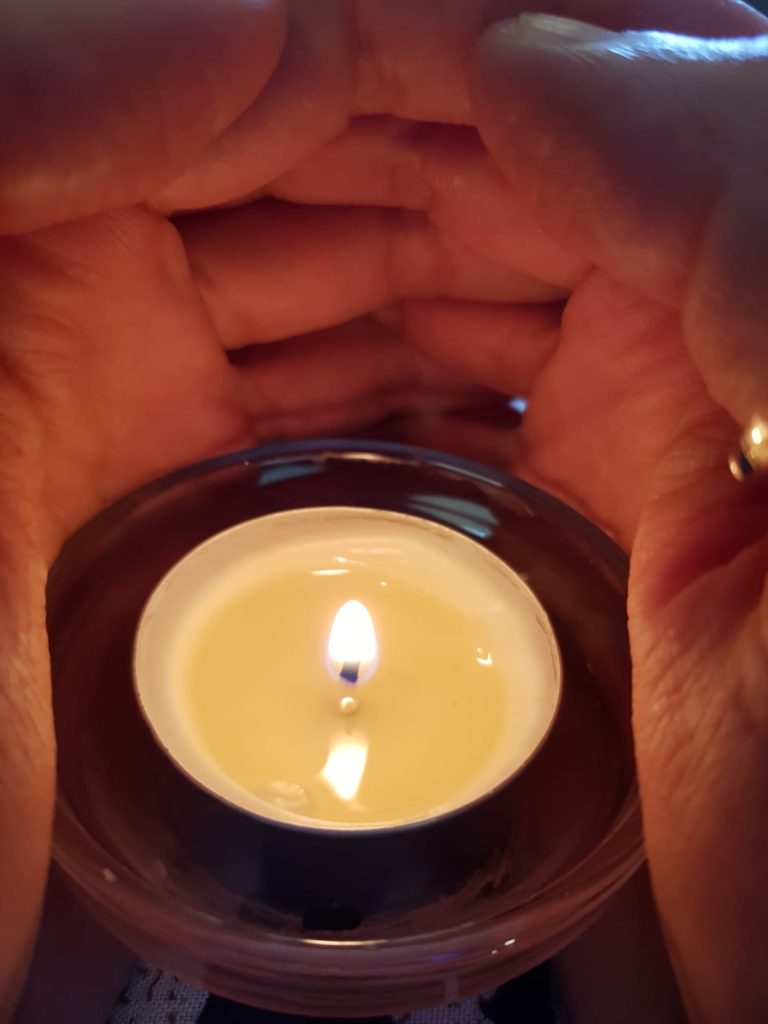Sep 26., 2018 / Homilies, News & Announcements, Soul Food, Updates and Activities
Feast of St. Thérèse Couderc (2018)
Homily of Fr. Silvino L. Borres, Jr., SJ on the FEAST OF ST. THÉRÈSE COUDERC on Sept 26, 2018
Our readings this morning are beautiful . They are carefully chosen to give us a glimpse into the richness of the life and spirituality of St. Thérèse. Three things or themes stand out for me from these readings, namely: desire for God, vulnerability and fecundity.
The 1streading (Ex. 33:18-23) talks of an ancient desire for God and sung for all ages, from one generation to the next: “Lord, show us your face.” This is echoed by the responsorial psalm where we hear the psalmist’ heartache for God. “My soul is thirsting for the Lord, when shall I see him face to face?”
St. Thérèse shares the same desire. She would refer to herself as “this poor soul who is always hungry for her God, and will always sigh for him until she is entirely united with him. But she had accepted the fact that the realization of such desire can’t be on earth. But nonetheless, there was never moment she would not pine for her beloved.” She recognized that it was this desire which launched her on a spiritual adventure and one which transformed her, as this desire deepened, into a devoted servant of God, available to Him, at every moment of her life, be it a mission, a daily challenge or occasions for suffering.
She had wished the same thing for all the people she encountered. I think she wished everyone to be closer to God. She must have seen the hunger and thirst for God among the pilgrims, particularly the women, visiting the shrine of Saint John Francis Regis. Years later, under her influence, these women would receive guidance to deepen their prayer and grow in their spiritual life.
Second, VULNERABILITY.
Like other Christian mystics, Saint Thérèse Couderc experienced from her own life and prayer that the path to happiness is handing oneself over to God, in union with the self-giving of Christ. In 1864 she writes:.
“To surrender oneself is more than to devote oneself, more than to give oneself, it is even something more than to abandon oneself to God. In a word, to surrender oneself is to die to everything and to self, to be no longer concerned with self except to keep it continually turned toward God.” (St. Therese Couderc: Her Writings)
To surrender oneself to God is to accept the call to dispossession, to embrace a life of vulnerability as the gospel we just read reminds us: Unless a grain of wheat dies, it will not bear fruit.
 Fr. Florencio Segura, SJ calls this surrender to God as “tough, terrifying, and radical”. It is because it is a call “to lose one’s life,” to the most radical dispossession of our certainties, of everything that supports our life. It is a call not to rely on anything. It is to relinquish the security of material things, the comfort and affection of our loved ones and family, and the assurance of control, power and self-sufficiency. This notion, of course, of dispossession, would sound ridiculous and absurd to a world long accustomed to violence and coercion as a way of proceeding.
Fr. Florencio Segura, SJ calls this surrender to God as “tough, terrifying, and radical”. It is because it is a call “to lose one’s life,” to the most radical dispossession of our certainties, of everything that supports our life. It is a call not to rely on anything. It is to relinquish the security of material things, the comfort and affection of our loved ones and family, and the assurance of control, power and self-sufficiency. This notion, of course, of dispossession, would sound ridiculous and absurd to a world long accustomed to violence and coercion as a way of proceeding.
St. Thérèse would experience this vulnerability in her own life, welcoming the call to dispossession. She underwent humiliations during her time as a nun. She was removed from her office and replaced with a new novice as the “Foundress Superior” in a severe humiliating move. And even long after this superior-novice was replaced with another, the humiliation of St. Thérèse continued.
Finally, FECUNDITY, FRUITFULNESS. Unless a grain of wheat dies, it will not bear fruit. Henri Nouwen, well-renowed spiritual writer, gave an exquisite observation on the mystery of suffering. He said that “where vulnerability is experienced, ours or those of others, we see life bursting forth!” As ancient wisdom reminds us, sufferings and deaths are conditions for fruitfulness or fecundity.They are occasions of growth and bearing fruit. It is God’s vulnerability that won for us our redemption and salvation. Jesus brought us new life in ultimate vulnerability. He came to us as a small child, dependent on the care and protection of others. He lived for us a poor preacher, without any political, economic or military power. He died for us nailed to a cross as a common criminal. Long before Henri Nouwen articulated it, it had been a consoling thought for St. Thérèse as she faced her own crosses, prompting her to say: “I cannot ask God to deliver me from these sufferings but only strength to suffer …”
It is easy to mistake fruitfulness or fecundity for efficiency and productivity given contemporary society’s pre-occupation with accomplishments and success. However, the call to live a fruitful life does not necessarily imply a call to be productive. You can still be flourishing and fruitful even in the midst of pain and suffering as Jesus did, as St. Thérèse Courderc did. From its humble beginnings in La Louvesc, France, the spiritual ministry of the Religious of the Cenacle continues, kept alive by more than 400 sisters in over 17 countries throughout the world. Pius XII talked about how the prayers of St. Thérèse had saved thousands, sanctified them, raising them even to heroism of virtue and zeal. (Beatification, 1951).
And so, we have here before us a heart of a saint that is devoted to God,accepting the summons of vulnerability and self-surrender as a path to discipleship and fruitfulness. As she has served God faithfully, we join Him in honoring St. Thérèse today.
St. Thérèse Couderc, pray for us.










